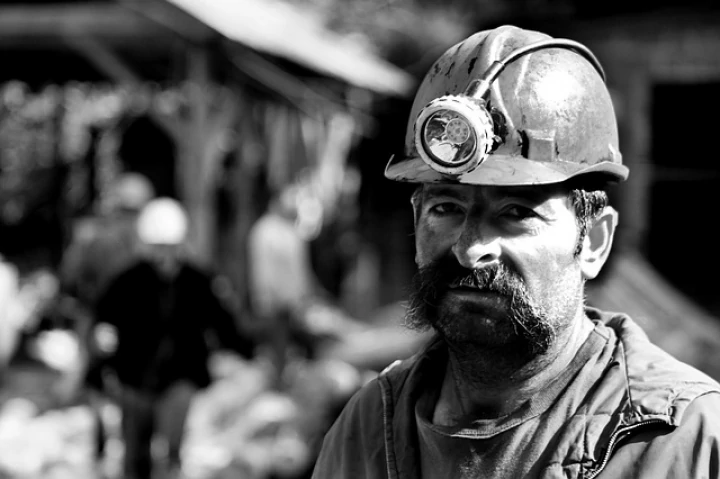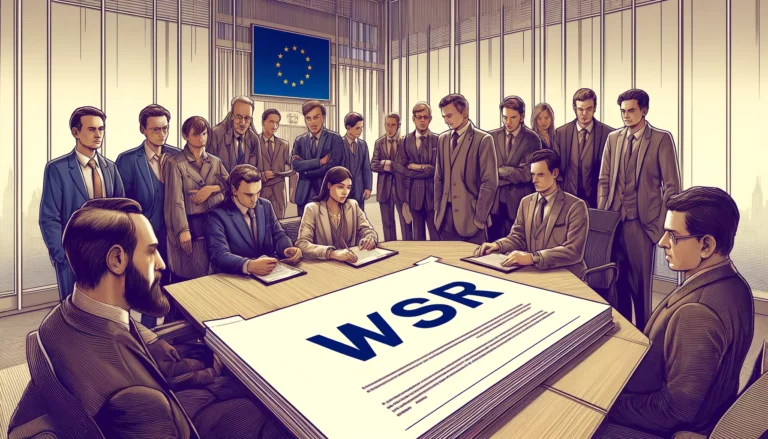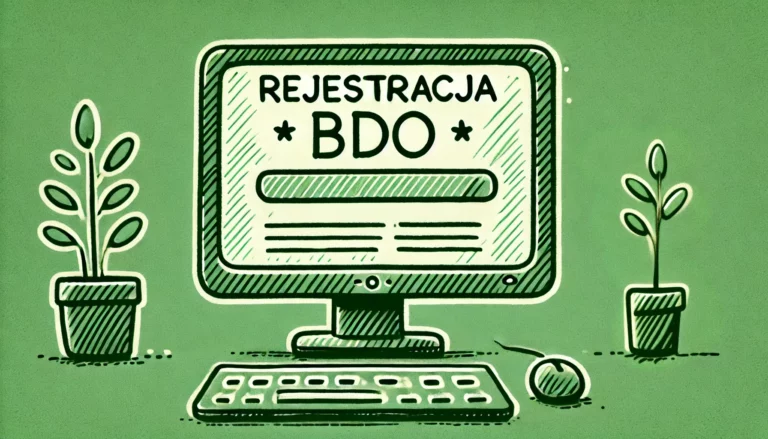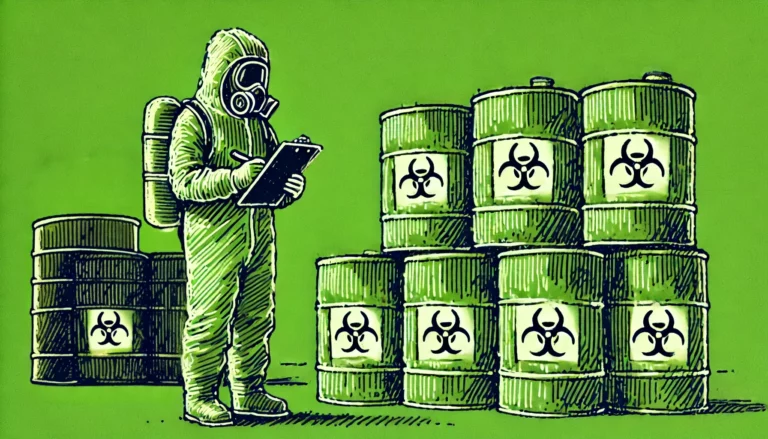Konin and the region - quo vadis?
Konin is founded on rapid change. This city did not exist before the war. It rose suddenly, not from ashes, but from coal.
For many months, there has been controversy surrounding the planned Oscisłowo mine. However, it is worth taking a look at Konin itself - what is the city like, what do its inhabitants live by, what do they dream of, what is the young generation planning? Two studies have recently been produced that treat this issue: "Konin 2050", prepared by Pracownia Miejska. Konin was also addressed by Filip Springer in his book "Archipelag", which has already won several awards, including at the Wrocław Good Book Fair. It turns out that in the debate on coal regions, the focus on economic and technological aspects obscures a very important issue - the social one. When a region faces change, there will always be winners and losers. If we want to avoid a situation like the one that happened in Walbrzych after the liquidation of the mining industry, we need to plan now. But we also need to think about what will happen to the jobs and how to avoid breaking with tradition, how to avoid offending pride and the memory of the good times. It is important to cultivate the collective imagination, but this takes time and a great deal of sensitivity.
Konin is founded on rapid change. This city did not exist before the war. It rose suddenly, not from ashes but from coal. Courageous, hard-working people came here. The city's population grew rapidly and dynamically. So it would seem that change and looking to the future, creating the impossible out of nothing, are what shaped this city. And that this being on suitcases, also mentally, is something you want and can return to. It turns out that it isn't. Old trees are not replanted. Konin is currently facing an important challenge, as changes are again on the horizon. The generation that built this city has a right to feel uneasy. All the more so because there are clearly two opposing narratives: on the one hand, mining is good and, on the other, we need to move away from mining. What is in between? Not much so far. And it seems that what this city really needs is precisely calm and a golden mean. Aurea mediocritas. Just as we needed coal before, we now need this gold. And courageous people.
Konin is not just a generation of 'pioneers'. The young and energetic generation is thinking about the future. This is why the "Konin 2050" report, developed by the Konin Urban Studio, was created. The report is a collection of imagined yet probable paths for the city's development. Which one will be chosen? The next year will be decisive, as it will turn out whether Konin and its surroundings will opt for transformation or for maintaining the status quo. And if transformation, what kind of transformation? It is worth mentioning that a conference on 'Just Transition', organised by MEPs from Die Linke and with the support of the Rosa Luxemburg Foundation in Brussels on 5 December 2016, was devoted to these and similar issues. This conference was attended by members of the coalition Development Yes-Overcoming No.
The city of Konin currently has an economic dominance - lignite mining and burning. In a sense, it is a mono-city, dependent on a specific sector. But which professional and generational groups will benefit from the transformation? The question has to be asked: are we betting on mining and those already employed in mining and mining-related and energy-related professions? What type of energy sector will dominate? What will be left for the younger generations? This is an important question, because ignoring current trends could contribute to the demographic collapse of the city. This is because former miners and power plant workers will be left behind. What about the rest?
In "Konin 2050", it is suggested that energy specialisation should be preserved, e.g. the establishment of an Energy Technology Centre, which would work on the transformation of Konin, an energy city, into an energy city, but based on other, renewable energy carriers. It is about the human and technological transformation of the energy of this city. So far, however, not much is happening in terms of change. Rather, there is a hysteria that we want things to be as they are. In such a situation, an imagined enemy proves helpful: "Sick with hatred, the departmental children want to impose on us all a line of thinking of not thinking. (...) To 'mend shoes, mend socks, produce sugar, mine coal, mend marriages' is not worth it," a priest thundered from the pulpit during the 2015 Barbora. (F. Springer, Archipelago, p. 188).
People need continuity, rootedness. It is hardly surprising that the prospect of change, of transformation, evokes emotions. It also generates complexes and fears - Why do I need to change? Is the way things have been so far wrong? Konin and the surrounding area, in addition to an energy complex, now has a complex and fear of change. This fear pushes itself - metaphorically speaking - under the heaps or the external heap. This complex is the predicted demise of lignite mining and the fear of job losses. As long as more open pits and with them heaps are built it is fine. But what when these heaps crush human histories, farmland, cemeteries, churches?
Listening to the alarmist statements of politicians, it is hard not to agree that what is being proposed is the resuscitation of a dying city. This fear, as is usually the case with fears, leads nowhere if it is not worked through. For the time being, everyone in Konin is afraid and letting fear lead them around by the nose. They are afraid, perhaps, so that Konin does not resemble Wałbrzych or other "failed" cities, as illustrated, among other things, by the report "Arizona". SeeHowever, just as the director of "Arizona", Ewa Borzęcka, staged, in part, a pathological image of a post-state farm village, so today's statesmen imagine a traumatic picture of the decline of Konin and its surroundings. And they can be accused in a similar way to Borzęcka - concern for the region cannot be limited to charting the city's decline.
For the time being, saving Konin and the surrounding area consists of using a mine prescription that is already out of date. Out-of-date? City residents will ask. After all, nothing acts more like a swat on a bull than good advice from "experts" from outside the region. However, the management of the Mining and Energy Management School is also aware of the mine's out-of-date vision. The management may have misgivings, but it has taken to work. The school knows that the young and active will give up hope of improvement and move to large conurbations if young people are not offered future-oriented professions today. Nowadays, the school, apart from its name, no longer has anything to do with the mining industry in terms of training courses: http://www.zsge.home.pl/autoinstalator/joomla/kierunki-ksztalcenia. What's more, a course on renewable energy sources has been opened.
The 'mining' school was visited by Filip Springer, among others. School Director: "The last class of opencast mining technicians came out of here in 2007. (...) After that, the course was closed because we did not want to produce unemployed people" (F. Springer, Archipelag, p. 195). The director emphasises, however, that it is necessary to remember the past of this city and to treat with respect what was here before. This is one of the reasons why students still celebrate St Barbara's Day and perform at it in traditional costumes. You could call it re-enactment, but perhaps it allows the present and earlier generations to maintain the continuity of tradition, which is, after all, life-giving and allows people to find and understand their place on earth. When asked by Springer why the students are performing these 'dress-ups', the director replies: "We have to think about what is today, what will be tomorrow. But it is difficult to forget what was yesterday".
Next year we will continue to look at Konin, the city and its people. We will be asking the younger generation how they imagine life in this city. We want to see what impact the mine, coal and the power plant have on the collective imagination, myths, traditions. There is certainly a lot we do not yet know about Konin's potential.
Hanna Schudy for www.eko.org.pl







